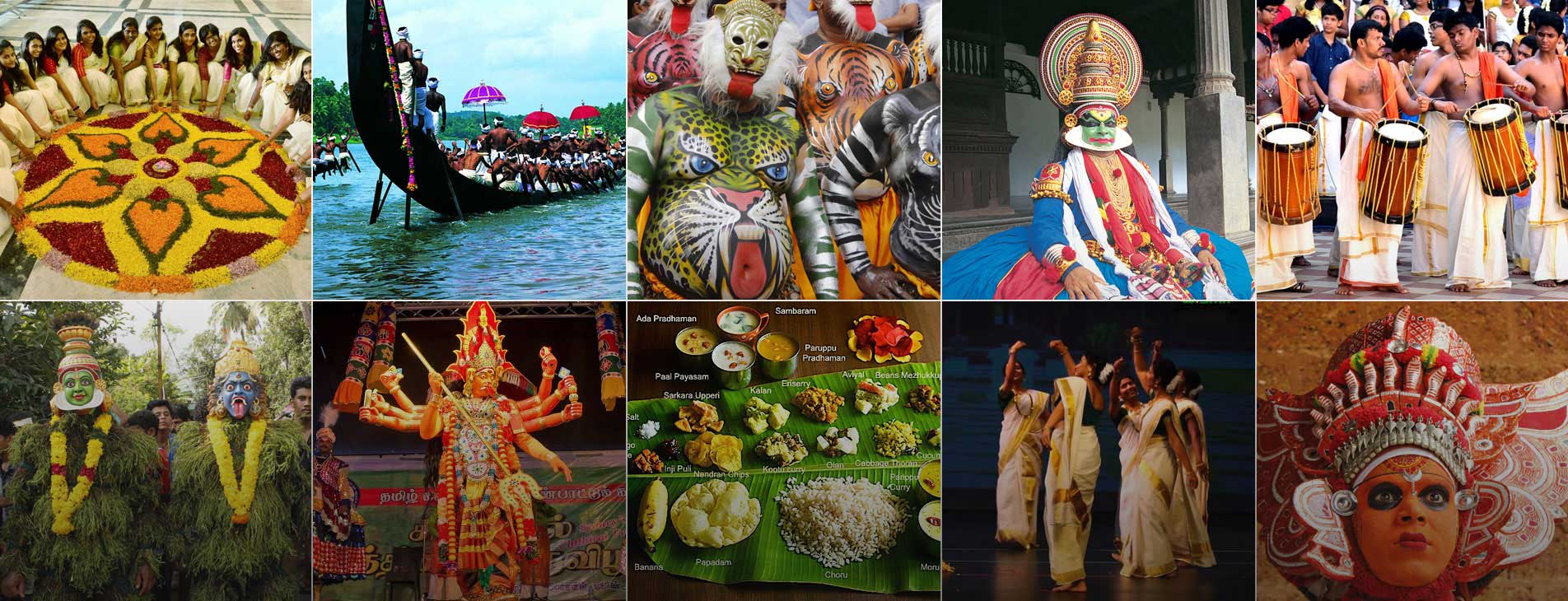
Onam: A Celebration of Bhagwan Vishnu’s Vamana Avatar and King Mahabali
Onam is a significant Hindu festival primarily celebrated in the Indian state of Kerala, and it is deeply rooted in Hindu history. This vibrant festival commemorates the Vamana avatar of Bhagwan Vishnu, one of his ten divine incarnations, while also celebrating the legendary homecoming of King Mahabali, a benevolent demon king who ruled Kerala during a golden era of prosperity and harmony.
According to Hindu history, Vishnu took the form of Vamana, a dwarf Brahmin, to restore cosmic balance. Mahabali, a generous and just king, became so powerful that the gods felt threatened by his rule. Vishnu, in his Vamana avatar, approached Mahabali during a yajna, requesting three paces of land. When Mahabali agreed, Vamana expanded to cover the entire universe in three steps, pushing Mahabali to the underworld. Grateful for Mahabali’s devotion, Vishnu allowed him to visit his land once a year , marking the celebration of Onam.
Historically, Onam was a harvest festival in Kerala, honoring the bounty of rice and crops while celebrating Mahabali’s benevolent rule. Over centuries, Onam evolved into a cultural festival uniting the people of Kerala, emphasizing harmony and community bonding. Today, this festival lasts for ten days in the Malayali month of Chingam, with main festivities occurring on Thiruvonam, the most auspicious day.
Today, Onam is more than a harvest festival; it is a lively celebration of Kerala’s rich cultural heritage. People engage in traditional music, dance, and recreation while indulging in grand vegetarian feasts known as Onam Sadya. The festival attracts tourists worldwide, highlighting Kerala’s traditions, arts, and hospitality. Ultimately, Onam encapsulates the essence of humility, generosity, and righteousness embodied by Mahabali and Vishnu’s Vamana avatar.
For more information on Onam and its significance, visit Hindu Festival.
